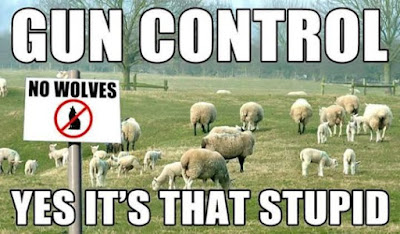The
Second Amendment protects an individual right to possess a firearm unconnected with service in a militia, and to use that arm for traditionally lawful purposes, such as
self-defense within the home.
Nothing written or argued by any of the poeple involved with the creation or ratification of the 2nd says anything different.
Individuals entering into society, must give up a share of liberty to preserve the rest. The magnitude of the sacrifice must depend as well on situation and circumstance, as on the object to be obtained.
-- George Washington, "Letter from George Washington to the President of Congress (Sept. 17, 1787)," 1 Documentary History Of the Ratification of the Constitution 305 .
Your understanding of what the framers wrote and argued is incomplete. To see that it is not, I refer you to page 14 and following in the "
The History of the 2nd Amendment" by David E. Vandercoy. I provided that link, along with several others, back in post 15 to ensure that you (others) and I are privy to the same scholarly body of information. Did you bother to read the content there before engaging me in this discussion? From that peer reviewed paper published in the Valparaiso Law Review, you've have found among many other historical exigencies that speak to the intent and discussions of the framers:
- It is so that George Mason discussed the role of arms in self-defense when he advocated for the Anti-Federalist position on the matter of the 2nd Amendment, suggesting that the right to self-defense is a right given by "divine providence."
- Patrick Henry, also an Anti-Federalist, "objected to the lack of any clause forbidding disarmament of individual citizens; "the great object is that every man be armed .... Everyone who is able may have a gun."
- The Anti-Federalists believed that governmental tyranny was the primary evil against which the people had to defend in creating a new Constitution. To preserve individual rights against such tyranny, the Antifederalists argued for the addition of a Bill of Rights which included, among other rights, the right to keep and bear arms.
- James Madison made clear that, although the proposed Constitution offered sufficient guarantees against despotism by its checks and balances, the real deterrent to governmental abuse was the armed population.
- In the course of ratifying the Constitution, the states also formed their own Constitutions. The state legislatures were comprised of the very same men from the states who were called to ratify the national Constitution. The constitutions of Maryland, New Hampshire, New York, and Virginia identified the necessity of maintaining the militia to preserve the free state. New York's constitution, while providing for a militia but not a right to bear arms, also noted that Quakers could not be compelled to bear arms. Similarly, Maryland, New Hampshire, and Virginia provided for a militia but not explicitly for the right to bear arms.
- James Madison, based on his suggested placement of the 2nd Amendment, viewed the right to bear arms as an individual right. "Madison's suggested placement of this amendment demonstrates that he understood the right to bear arms to be an individual right. Had Madison viewed the right as the states' right, the more logical placement of the right would have been in Article 1, Section 8, clause 16, which reserves to the states the power to appoint the officers of the militia and provides authority to train the same."
- The original verbiage for the 2nd Amendment as passed by the House was, "the right of the people to keep and bear arms for the common defense shall not be infringed." The Senate removed "for the common defense" from the language sent for ratification to the state legislatures.
By the end of Vandercoy's paper, it becomes clear that as the author writes:
English history made two things clear to the American revolutionaries: force of arms was the only effective check on government, and standing armies threatened liberty. Recognition of these premises meant that the force of arms necessary to check government had to be placed in the hands of citizens. The English theorists Blackstone and Harrington advocated these tenants. Because the public purpose of the right to keep arms was to check government, the right necessarily belonged to the individual and, as a matter of theory, was thought to be absolute in that it could not be abrogated by the prevailing rulers.
These views were adopted by the framers, both Federalists and Antifederalists. Neither group trusted government. Both believed the greatest danger to the new republic was tyrannical government and that the ultimate check on tyranny was an armed population. It is beyond dispute that the second amendment right was to serve the same public purpose as advocated by the English theorists. The check on all government, not simply the federal government, was the armed population, the militia. Government would not be accorded the power to create a select militia since such a body would become the government's instrument. The whole of the population would comprise the militia.
Although one framer is documented as having mentioned self-defense, the overwhelming majority of discussion regarding the 2nd Amendment had nothing to do with self-defense. At best, the self-defense argument we so commonly hear these days is but a convenient line put forth by "situation and circumstance" as both are perceived and/or sought by individuals and businesses in our time.
Moving to the content found in "The Founding Fathers vs. the Gun Nuts," (apologies for the loaded language of the article's title; I didn't write the article), the second reference link I provided in post #15, one finds further that New Hampshire's legislature:
...introduced an amendment that gave the government permission to confiscate guns when citizens "are or have been in Actual Rebellion." To those early legislators in New Hampshire, the right to bear arms stops as soon as those arms are taken up against our "we the people" government.
Just ask the ancestors of those who participated in the Whiskey Rebellion. In 1794, armed Americans took up guns against what they viewed as a tyrannical George Washington administration imposing taxes on whiskey. President Washington called up 13,000 militia men, and personally led the troops to squash the rebellion of armed citizens in Bedford, Pennsylvania. No Army.
One might also have endeavored to read the thoughts expressed by the founders and that were presented for in another link in post #15. In doing so, one might have encountered the following self-defense related comments:
Thomas Paine:
The supposed quietude of a good man allures the ruffian; while on the other hand, arms like laws discourage and keep the invader and the plunderer in awe, and preserve order in the world as well as property. The balance of power is the scale of peace. The same balance would be preserved were all the world destitute of arms, for all would be alike.
-- "Thoughts on Defensive War, 1775;" The Writings of Thomas Paine, Collected and Edited by Moncure Daniel Conway (New York: G.P. Putnam’s Sons, 1894) Volume 1, Chapter XII
James Madison:
To suppose arms in the hands of citizens may be used at individual discretion in private self defense, or by partial orders of towns, counties, or districts of a state, is to demolish every constitution, and lay the laws prostrate, so that liberty can be enjoyed by no man; it is a dissolution of the government.
-- A Defence of the Constitutions of Government of the United States of America, Chapter Third: Marchamont Nedham, Errors of Government and Rules of Policy, 1787; The Works of John Adams, Second President of the United States: with a Life of the Author, Notes and Illustrations, by his Grandson Charles Francis Adams, (Boston: Little, Brown and Co., 1856) 10 volumes, Volume 6
Now, I'm not at all suggesting that no framers besides Patrick Henry advocated for the one's right to have arms for self-defense. Thomas Jefferson and others so argued as well. Even a cursory read of history will show that the matter of the 2nd Amendment, its aims and consequences (imagined, intended or actual) were as hotly debated in the late 18th century as they are today.
What I'm saying is that the focus of discussion about the 2nd Amendment as goes its inclusion among the Bill of Rights had to do with defending the nation not with defending oneself. I'm also saying that it's absolutely not so that. as you wrote, "Nothing written or argued by any of the poeple [sic] involved with the creation or ratification of the 2nd says anything different" with regard to the possession of firearms for self-defense. I'm saying that if you are going to argue a point with me, do so by offering statements and conclusions that are factually accurate.
Lastly, I'm saying that if you want to assert that you disagree with my or others viewpoints, fine, but at least present a well developed argument that uses contextually accurate representations of fact and present the case for your view's greater righteousness than an opposing view.
You'll notice from the preceding that I accord you the respect -- that due to anyone who is neither fool nor willfully ignorant -- of presenting fairly and completely the details surrounding the topic of discussion. I ask only that in engaging me, you do so with the same consideration.







